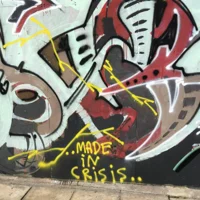Our research clusters

Through theoretically rich and empirically rigorous research, we forge a dynamic engagement with our discipline that encompasses a critical and international outlook, and incorporates interdisciplinary exchange. We are invested in innovative and varied methodological approaches to understanding social processes that include climate change, migration, urbanisation, and the reconfiguration of inequalities, human rights, social movements and social justice.
Our excellence in research is strengthened through our five principal clusters:

Economic Sociology
This research cluster brings together colleagues working on a diverse array of topics related to the economy and economic life. The shared premise of our work is that economic action and economic institutions are fundamentally and unavoidably social and should be analysed as such.

Knowledge, Culture and Technology
This cluster starts from the analytical, methodological and political recognition that meaning and materiality are co-constituting in their organisation and performance. It shares a commitment to methodological creativity, particularly in generating new modes of engaging and co-producing knowledge with non-academic collaborators.

Politics and Human Rights
This research cluster focuses on the social bases of political parties and movements; the theory and practice of human rights; democracy and participation in states, firms and civil society organisations; political ideologies; political violence; and the politics of cities and housing.

Social Inequalities
This research cluster brings together colleagues working on multiple dimensions and crystallisations of social inequality, including class, race and ethnicity, gender, and age, to critically analyse contemporary challenges across the globe.

Urban Sociology
This research cluster consists of urban sociologists and ethnographers collaborating with urban designers and planners to study the dynamics of urban transformations. Processes of urbanisation are examined in relation to global systems of power and regulation, cultural hierarchies and subversions, and forms of association and exclusion.